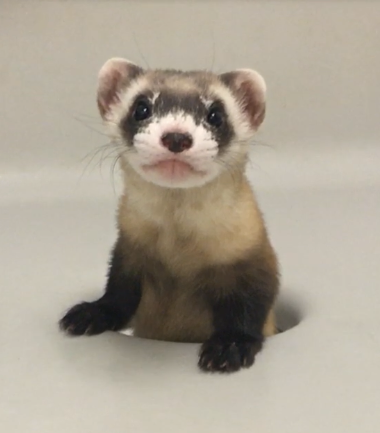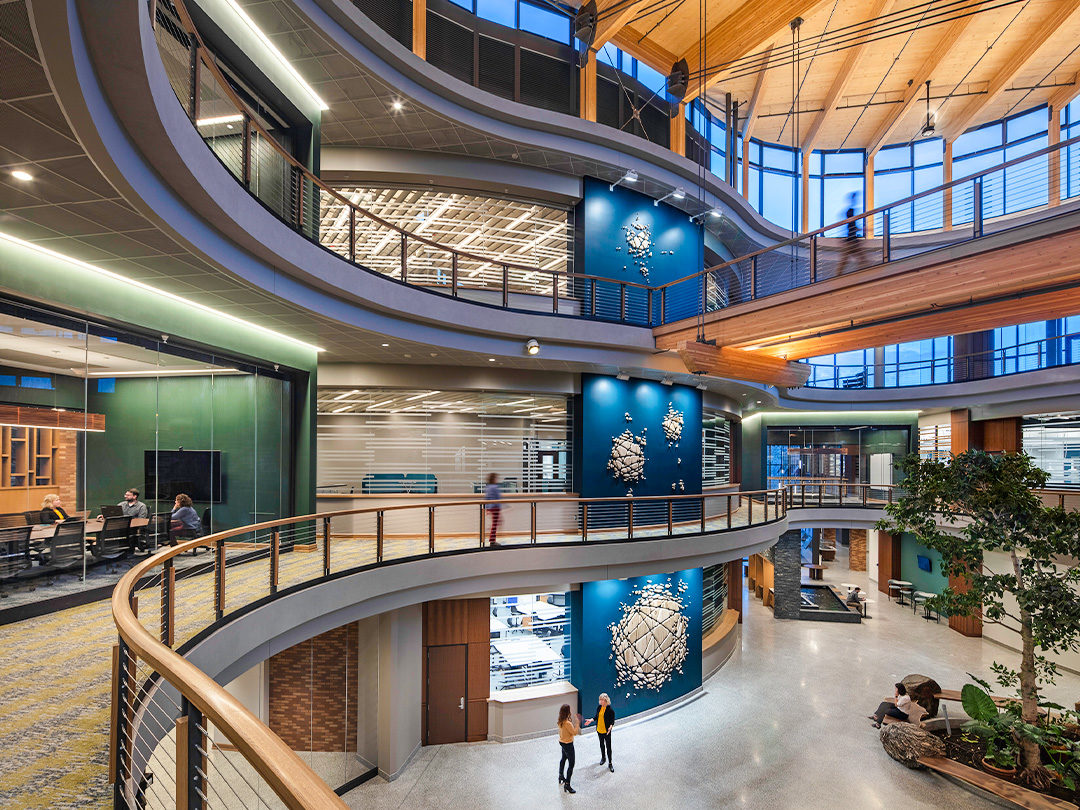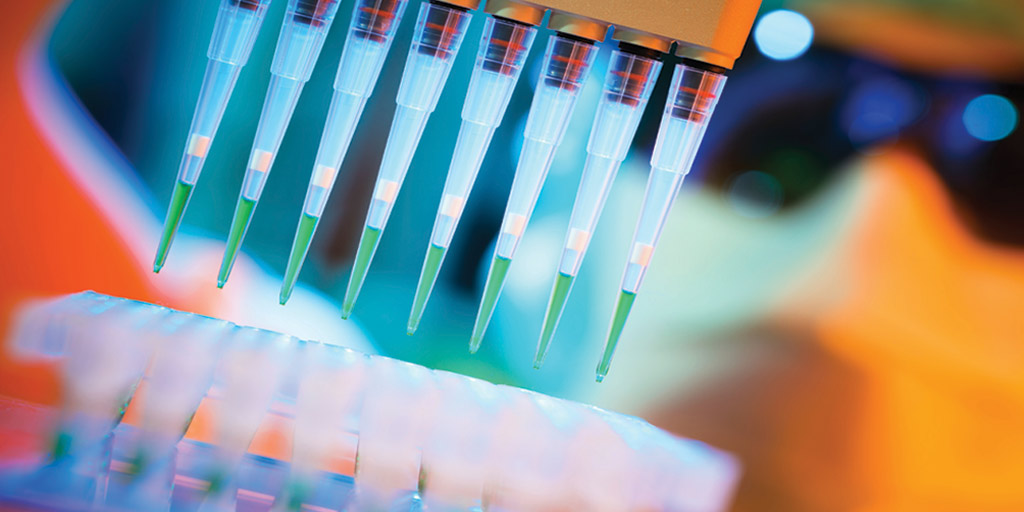On July 3rd and 4th, 2021, we celebrate World Firefly Day, and 2021, marks 30 years of luciferase products firefly luciferase vectors and Luciferase Assay System. These tools are key in advancing bioluminescent technology. To celebrate this day, we want to highlight some innovations that have been made possible with these tools.
Continue reading “World Firefly Day: Shining More Light on Glo-ing Innovations”Author: Riley Bell
Shifting Conservation Status: Endangered Species Get a Second Chance
On May 21st, 2021 we celebrate National Endangered Species Day. This day helps raise awareness and increase knowledge of endangered species and wildlife, in hopes to save them. We have been lucky enough to collaborate with organizations and partners to help save species that were on the brink of extinction. Take a look at some species that are hoping for a second chance to survive and thrive.
Kit Elizabeth Ann the Black-Footed Ferret

In February 2018, resurrection efforts began for the then endangered black-footed ferret. With the help of the U.S. Fish and Wildlife Service, Revive and Restore, partners ViaGen Pets & Equine, San Diego Zoo Global, and the Association of Zoos and Aquariums, the successful cloning of a black-footed ferret was announced in February 2021. “Elizabeth Ann” was cloned from Willa, a female ferret that died in 1988, using somatic cell nuclear transfer (SCNT). Elizabeth Ann’s genetic variants reveal a lot of much-needed hope for the genetic diversity of wild ferrets. Check out the full story on Elizabeth Ann’s journey here!
Continue reading “Shifting Conservation Status: Endangered Species Get a Second Chance”Growing Through Sustainability Sensibilities

We recently announced the opening of our newly constructed Kornberg Center research and development facility on our Fitchburg, WI campus. While we grow our company through new facilities around the globe, it is vitally important that we expand our sustainability efforts along the way. We are committed to preserving and improving our environment for a thriving future.
Prioritizing Sustainability with Best Practices from Around the World
Incorporating sustainability best practices from around the world is key to our long-term planning. Each new Promega facility is designed to meet ambitious sustainability objectives, and innovations incorporated in one project inform the next. We also align projects to meet United Nations Global Compact Sustainable Development Goals. All of our locations collectively contribute to minimizing the effect we have on our environment.
Here are a few of many sustainability initiatives Promega practices around the world:
Continue reading “Growing Through Sustainability Sensibilities”Paving New Ways for Drug Discovery & Development: Targeted Protein Degradation
The Dana-Farber Targeted Protein Degradation Webinar Series discusses new discoveries and modalities in protein degradation.
In this webinar, Senior Research Scientist, Dr. Danette Daniels, focuses primarily on proteolysis-targeting chimeras, or PROTACs. A variety of topics are covered including the design, potency, and efficacy of PROTACs in targeted protein degradation. Watch the video below to learn more about how PROTACs are shifting perspectives through fascinating research and discoveries in targeted protein degradation.
Learn more about targeted protein degradation and PROTACS here.
Bioluminescent Sharks Set the Sea Aglow
Many deep sea creatures are bioluminescent. However, before documenting the luminescence of the kitefin shark, Dalatias licha, there has never been a nearly six-foot long luminous vertebrate creature. In a recent study, Mallefet and colleagues examined three species of sharks: Dalatias licha, Etmopterous lucifer, and Emopterus granulosus and documented their luminescence for the first time. These bioluminescent sharks are the largest bioluminescent creatures known.

Buckling Down to Scale Up: Providing Support Through the Pandemic
The past year has been a challenge. Amidst the pandemic, we’re thankful for the tireless work of our dedicated employees. With their support, we have continuously stayed engaged and prepared during all stages of the COVID-19 pandemic so that we can serve our customers at the highest levels.
How We Got Here
The persistent work by our teams has made a great impact on the support we can provide for scientists and our community during the pandemic. From scaling up manufacturing to investing in new automation, every effort has helped.
Promega has a long history of manufacturing reagents, assays, and benchtop instruments for both researching and testing viruses. When the pandemic began in 2020, we responded quickly and efficiently to unprecedented demands. In the past year, we experienced an approximately 10-fold increase in demand for finished catalog and custom products for COVID-19 testing. In response to these demands, we increased production lines. One year ago, we ran one shift five days per week. Currently, we run three shifts seven days per week. This change has allowed 50 different Promega products to support SARS-CoV-2 testing globally in hospitals, clinical diagnostic laboratories, and molecular diagnostic manufacturers. Additionally, our clinical diagnostics materials make up about 2/3 of COVID-19 PCR tests on the global market today. Since January 2020, Promega has supplied enough reagents to enable testing an estimated 700 million samples for SARS-CoV-2 worldwide.
Developments and Advances
Promega products are used in viral and vaccine research. This year, our technologies have been leveraged for virtually every step of pandemic response from understanding SARS-CoV-2 to testing to research studies looking at vaccine response.

- Products in the US Centers for Disease Control (CDC) Influenza SARS-CoV-2 (Flu SC2) Multiplex Assay for emergency use: Maxwell® RSC 48 and CSC 48 instruments; Maxwell® RSC Viral Total Nucleic Acid Purification Kit
- Products in the CDC 2019-Novel Coronavirus Real-Time RT-PCR Diagnostic Panel for emergency use: GoTaq® Probe 1-Step RT-qPCR System; Maxwell® RSC 48 and CSC 48 instruments; Maxwell® RSC Viral Total Nucleic Acid Purification Kit
- XpressAmp™ Direct Amplification Reagents enable direct amplification of viral nucleic acid from samples without RNA extraction.
- Promega developed a SARS-CoV-2 RT-qPCR Kit for Wastewater to provide a surveillance approach to get ahead of COVID-19 progression in a community.
Who Got Us Here
We are extremely grateful for our employees. In the past year, we hired over 100 people and still have positions open today. While welcoming newcomers, this challenging year also reinforced the importance of our collaborative culture. Relationships at Promega have been built over multiple years. The long history of our teams allows us to stay coordinated while prioritizing product distribution to customers across the globe. It also leads to effective communication with colleagues and vendors. Those leading our manufacturing operations team, for example, have an average tenure of 15 years. Their history in collaborating through challenging situations helps them quickly focus where needed most.
Our 600 on-site employees support product manufacturing, quality, and R&D. They do it all while remaining COVID-conscious by social distancing, wearing masks, working split shifts, and restricting movement between buildings. While we continue to practice physical safety precautions, we also prioritize our employees’ mental health and wellness. Promega provides a variety of wellness resources including phone and video mental health sessions, virtual fitness and nutrition classes, and stress and anxiety tools.
What’s to Come
While we acknowledge that the COVID-19 is not over, we are proud of the support we have been able to provide to customers working both on pandemic research and critical research not related to COVID-19. Our policies of long-term planning and investing in the future has allowed us to respond quickly and creatively and learn from the experience.
Related Posts
Reduce, Reuse, and Recycle During the Holidays
In the latter months of the year, the holiday season brings lots of gifts, packages, and deliveries. One of the best ways to spread holiday cheer and connect with one another is to reduce, reuse, and recycle packaging material. Doing so will benefit the gift that keeps on giving—our planet.

The question is, what’s the best way to reduce, reuse, and recycle the materials used for gifting? First, it’s important to know which gifting material is recyclable and which is not recyclable.
Continue reading “Reduce, Reuse, and Recycle During the Holidays”